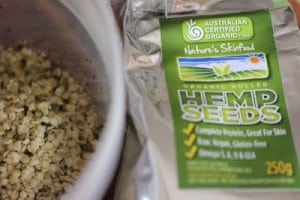
By: Amanda Froelich,
True Activist.
Why do we need meat for protein? Many ponder it’s because meat is one of the only sources of all amino acids (building blocks of protein) which will ensure one has healthy hair, defined muscle definition, and a well-functioning noggin’. While the importance of protein is accurate, the promoted optimal source is outdated.
Contrary to 50’s thinking that a steak, eggs, and bacon is a well-balanced meal to promote longevity and health, it’s become a blatant fact that high protein, high animal fat diets along with an abundance of processed foods has been contributing to most modern day diseases such as diabetes, obesity, heart disease, and stroke- among many other popular conditions. With 220 billion dollars being spent annually (source) on preventable health illnesses, the food on the dinner table should be assessed more seriously.
This article is not necessarily promoting a vegetarian or even vegan diet, but factually sharing that a predominantly plant-based diet is optimal for healing, losing weight, and overcoming illness. Some valuable resources on this topic are: The China Study, Forks over Knives, Hungry for Change documentary, and Joel Furhman’s Eat to Live – just a few of many.
Because protein is such a topic of conversation when anything plant-based related is discussed, it’s important to share these ten plant based protein powerhouses that will provide muscle-building, endurance sustaining, and optimum nutrition effects; fuel that is full of life-promoting nutrients, anti-oxidants, minerals, water, and fiber for healthy bodies.
1. Green Vegetables
Full of vitamins B, C, K, and A, anti-oxidants, important minerals such as potassium, Calcium, and Magnesium, fiber, and all essential amino acids, these garden grown super foods have more protein per calorie than ground beef. Think of the strongest land animals in the world – elephants, gorillas, rhinos, horses – all green eaters that don’t spend hours in the gym. They have first-rate muscle from eating alkaline forming foods; to butcher a cow for the meat in this regard, is to consume second source protein, when you could obtain all the proper amino acids from plant foods, specifically green, leafy vegetables.
2. Sprouts
Packing a serious punch, sprouts will rival any protein source as they’re 25-30% protein. They’re delicious in wraps, in salads, or even for the brave – thrown in smoothies. You can grow your own sprouts, making this powerful protein-rich food conveniently economical as well!
3. Chia
Used in the Aztec and Mayan cultures for endurance, Chia seeds are incredible protein sources. Not only do they absorb 10x their weight in water making them very hydrating, but they contain balanced Omega-3 and 6 fat ratio, have 5x the Calcium of milk, and are rich in anti-oxidants. They’re fun to use, too, as porridge (soaked in nut/seed milk overnight) or to thicken smoothies.
4. Hemp
Containing all amino acids, important Omega-3 and Omega-6 ratio, a high protein percentage, and a rich content of Vitamin E, hemp seeds are a super food in all they offer. Aside from being utilizable to create clothing as well as being economical to grow, they’re easily used in the kitchen. From hemp milk and butters to the seed itself thrown in salads, hemp is convenient to use and an important protein-rich source for those seeking to eat more plant-based.
5. Avocado
Many are aware that avocado is rich in essential fatty acids, but its protein-rich content and its Vitamin E content make it another super food to include regularly. Avocado also packs a good amount of fiber, B vitamins, Folic Acid, and Potassium. The ways to consume this creamy, protein-packed fruit are endless: in sandwiches, on its own, in smoothies, or in salads, it’s hard to be disappointed. Here is an article with all the health benefits of the worlds most perfect food.
6. Coconut
Similar to Avocado in the fact that it is rich in medium-chain essential fats, therefore it promotes weight loss in the body, there are other reasons to consume coconut. Abundant in Zinc, Potassium, Fiber, and Iron, it’s also a great source of plant-based protein which nourishes every aspect of the human body.
7. Sprouted Brown Rice
Any grain when sprouted becomes more nutrient-dense and technically can be called a vegetable. A popular sprouted grain utilized in the plant-based protein world is Brown Rice, and for good reason! Sprouted brown rice is dense in Vitamin E, Magnesium, B vitamins, and all essential amino acids. Its bio-available nutrients are much more utilizable by the body and more importantly, is very alkaline forming in the body.
8. Pumpkin Seeds
Amazingly high in Zinc, Vitamin E, anti-oxidants, and amino acids, pumpkin seeds are a worthy food to include in one’s diet. Sprinkled in salads, as a snack, or even made into breads, they’re an earthy-addition to any meal.
9. Maca
You may have heard of it for its aphrodisiac qualities, but aside from its abundant vitamin B, C, and E content, it’s also rich in protein. Don’t forget – it provides plenty of Calcium, Zinc, Iron, Magnesium, and Phosphorous; its chalky flavor is perfect in smoothies or even dessert creations, preferably uncooked to retain its nutritional value.
10. Broccoli
Similar to the green, leafy vegetables, Broccoli is an intense protein powerhouse! Rich in Mangesium, Potassium, Calcium, Vitamin C, and even some B vitamins, it’s a health-promoting food. Steaming is an easy and healthy way to consume the vegetable.
Nature offers many foods that improve the health and provide abundant nutrition to the human organism. Never worry about where to attain ‘protein’ again, and reduce the risk of preventable illnesses by consuming more fresh plant foods in your diet.
More resources regarding plant-based diets, nutrition, and the emphasis of quality of protein over quantity include:
The China Study by Colin T. Campbell
– few resources among many.


